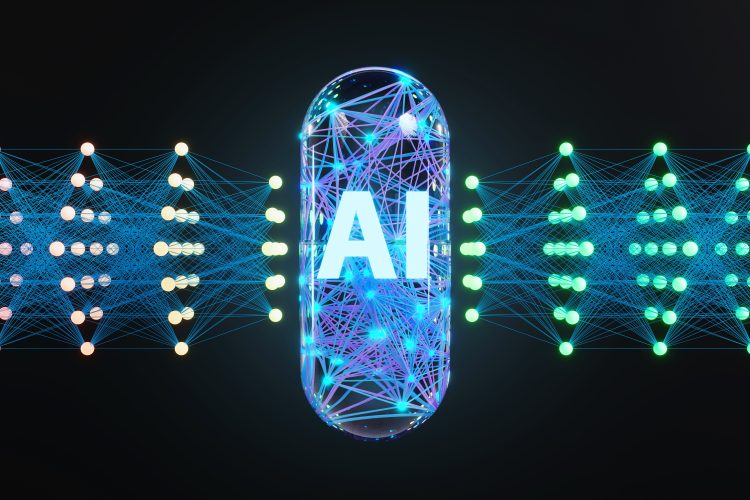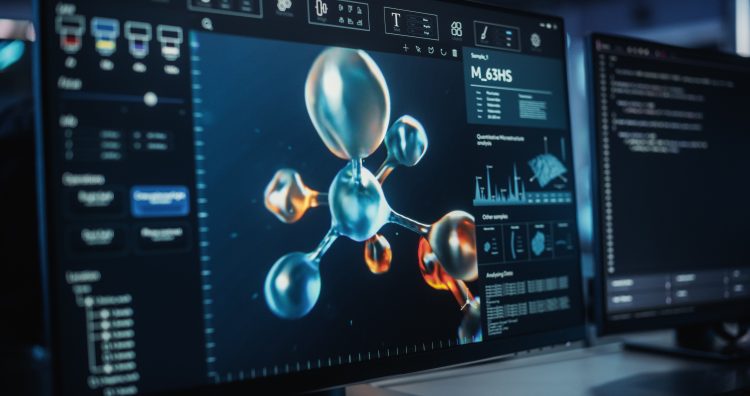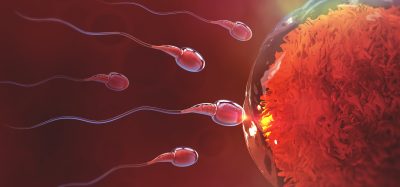Chemistry-aware AI offers new routes in small molecule design
Posted: 15 October 2025 | Drug Target Review | No comments yet
AI has advanced molecule design, yet synthetic feasibility remains a bottleneck. Chemistry-first approaches offer a practical way forward.


Artificial intelligence (AI) is being applied across the drug discovery pipeline, from target identification to clinical trial design. In small-molecule research, generative models can propose new chemical structures at scale, but many suggestions cannot be synthesised or require impractical multi-step routes. This limitation has slowed adoption in medicinal chemistry labs where time, budget and feasibility are critical.
To explore how chemistry-aware strategies are overcoming key barriers in drug discovery, Drug Target Review spoke with Yann Gaston-Mathé, co-founder and CEO of Iktos. This growing startup has been developing generative AI tools for molecular design since 2016.
From pharma to startup
Gaston-Mathé did not begin his career in AI. Having trained as an engineer, he studied biology at postgraduate level and then spent 15 years in the pharmaceutical industry at Servier and Ipsen. By 2012 he had begun retraining in data science with the ambition of launching his own company.
Biomarkers are redefining how precision therapies are discovered, validated and delivered.
This exclusive expert-led report reveals how leading teams are using biomarker science to drive faster insights, cleaner data and more targeted treatments – from discovery to diagnostics.
Inside the report:
- How leading organisations are reshaping strategy with biomarker-led approaches
- Better tools for real-time decision-making – turning complex data into faster insights
- Global standardisation and assay sensitivity – what it takes to scale across networks
Discover how biomarker science is addressing the biggest hurdles in drug discovery, translational research and precision medicine – access your free copy today
“I’m an engineer by training with postgraduate studies in biology,” he says. “I’ve always been fascinated by medicine, which led me to join Servier after completing my studies, and later I worked across the pharmaceutical industry for about 15 years, including at Servier and Ipsen.”
A meeting with his co-founders Quentin Perron and Nicolas Do Huu in 2016 proved decisive. They had been working on methods to automatically design molecules with AI. Gaston-Mathé saw the potential, joined forces and Iktos was born.
The challenge of synthesisability
One reason drug discovery resists disruption is the complexity of chemistry itself. Molecules that look promising in silico may be impossibly expensive or slow to make in practice.
Drug discovery and development is arguably the most complex industrial endeavour there is.
“Drug discovery and development is arguably the most complex industrial endeavour there is,” says Gaston-Mathé. “It depends on countless factors that are hard to control and bringing a new drug to market typically takes 15–20 years.”
Generative AI models inspired by natural language processing can generate molecules that resemble known chemistry. But, as he notes, “they do not inherently grasp the difference between a molecule that can be made efficiently in the lab and one that cannot.” Without control of feasibility, he argues, the adoption of such systems “will be hampered and the impact on productivity will be modest.”


Artificial intelligence is transforming drug discovery by helping scientists design new molecules more efficiently. A major challenge is ensuring that these AI-generated compounds are practical to synthesise and test in real laboratory. Image credit: Shutterstock / Gorodenkoff.
Makya’s chemistry-aware design
Makya, Iktos’ flagship platform, was built to address this issue directly. Rather than producing molecules as strings of characters, the system builds them step by step using known reactions and real starting materials.
The key difference is that Makya does not generate molecules as strings that merely resemble known chemistry. It performs what I would call iterative virtual chemistry.
“The key difference is that Makya does not generate molecules as strings that merely resemble known chemistry. It performs what I would call iterative virtual chemistry,” Gaston-Mathé explains.
The neural network selects chemical building blocks before applying reactions in sequence. Users can constrain suppliers, prices or the number of steps, ensuring that synthetic routes are realistic from the outset.
“Because Makya builds molecules via sequences of feasible reactions on real starting materials, synthetic accessibility is guaranteed and controllable,” he says. Equally important, the system was designed for chemists: “It mirrors how chemists think and work, letting them impose precise constraints and express their intuition.”
Benchmarks in practice
Benchmarking results have suggested that Makya outperforms leading open-source approaches such as REINVENT 4. For Gaston-Mathé, the critical test is whether candidates are both feasible and diverse.
For people running real programmes, two things matter above all: can we make the molecules and do they broaden our options rather than repeat the same idea. That is exactly where Makya’s chemistry-aware approach shines.
“For people running real programmes, two things matter above all: can we make the molecules and do they broaden our options rather than repeat the same idea. That is exactly where Makya’s chemistry-aware approach shines.”
Head-to-head comparisons showed Makya producing a larger share of compounds with viable synthetic routes and offering more scaffold diversity. The platform also enforces real-world constraints from the start – one-step couplings, specified reaction sets or limited building block catalogues – rather than filtering after generation.
“In practice, that is the difference between hundreds of lab-ready candidates versus a handful that slip through filters,” he says.
A co-pilot, not a replacement
Despite fears that AI might displace scientists, Gaston-Mathé emphasises that Makya acts as an assistant.
Rather than replacing chemists, Iktos positions Makya as an assistant. The platform acts as a co-pilot: chemists define the features they want and the constraints on synthesis, and the system explores chemical space to propose candidates that are both novel and synthesisable. These searches are guided by project-specific predictive models, including structure-based methods, so that the suggestions remain aligned with programme objectives.
Why adoption is uneven
Pharmaceutical companies have been quick to announce AI collaborations, yet day-to-day uptake has sometimes lagged. Gaston-Mathé attributes this to organisational factors rather than technical ones.
“It has been both quick and slow,” he admits. Senior leaders were often early to sign partnerships, but these were “a bit premature given the maturity of the technology at the time” and they did not always bring along the chemists responsible for delivery.
“Sustained impact requires thinking-AI adoption as a change-management programme. You must convince medicinal chemists, give them tools they want to use, invest in training, coaching and support, and define the right collaboration model with computational chemists who steward the data and models. In my view, most adoption challenges are less about algorithms and more about organisational integration.”
Beyond design
Looking further ahead, Gaston-Mathé sees AI’s greatest potential in predicting patient outcomes rather than designing molecules.
“We already see clear progress in new target identification and in accelerating candidate selection. The hardest and potentially most transformative frontier is predicting clinical outcomes: understanding how a compound will impact patients in a given disease and identifying the right patient populations most likely to respond.
“It is a formidable challenge that will take years, perhaps decades, but if AI moves the needle there, it could profoundly reshape R&D.”
Conclusion
By focusing on chemistry-aware design and embedding synthetic feasibility into every step, Iktos has tried to ground AI drug discovery in practical reality. Gaston-Mathé insists that tools like Makya are not there to replace chemists but to expand their options and shorten the cycle from design to synthesis.
Whether AI will one day predict patient responses remains an open question. For now, progress in making realistic, diverse and controllable molecules marks a tangible step towards faster and more productive discovery.
Meet the expert


Yann Gaston-Mathé, Co-founder and CEO of Iktos
Yann Gaston-Mathe has extensive work experience in various roles within the pharmaceutical and biotechnology industries. Yann is the Co-founder and CEO of Iktos since October 2016. Prior to that, they worked at IntegraGen as the Acting Head of R&D from March 2018 to October 2018, and as the VP of Molecular Diagnostics from February 2017 to February 2018. Yann was a Partner at Quinten from July 2015 to August 2017, where they provided data science services for the life science and healthcare industries. Yann also served as a Senior Manager at CEPTON Strategies from February 2016 to March 2017.
Yann has experience at Optivia Biotechnology, where they worked as the Acting European Head of Business and Corporate Development from September 2014 to March 2016. Yann served as the Director of Life Sciences and Healthcare at Hypercube Research, a Data Analytics company, from June 2012 to June 2014. Additionally, Yann had various roles at Ipsen, including Project Director of R&D and TechOps Transformation from April 2011 to June 2012, Senior Director of Research Strategic Planning from April 2009 to September 2011, and Director of IS/IT Governance from March 2006 to April 2009. Yann began their career at Servier as the Head of IS Coordination for R&D from 1995 to 2001. Throughout their career, Yann has been involved in business and commercial development, research strategy, portfolio management, and data analytics in the healthcare industry.
Related topics
Artificial Intelligence, Computational techniques, Drug Discovery, Drug Discovery Processes, Machine learning, Medicinal Chemistry, Small Molecules, Targets
Related organisations
Iktos
Related people
Yann Gaston-Mathé (Co-founder and CEO of Iktos)








